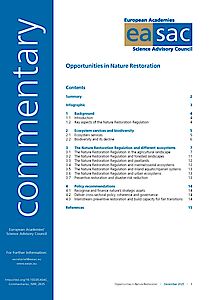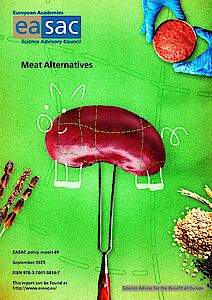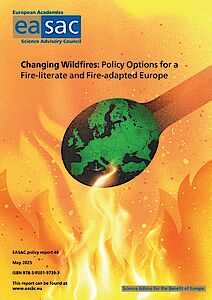Publications
The Imperative of Climate Action to Protect Human Health in Europe
The pace and extent of recent environmental change, in particular climate change, poses serious challenges to global health gains made over recent decades. In previous work, the European Academies’ Science Advisory Council (EASAC) has covered several significant challenges relevant to climate change across Europe, for example in assessing the potential of negative emissions technologies in meeting emission targets, and monitoring trends in extreme weather events. In the present report, EASAC focuses on climate change and health. Although the European Union (EU) is very actively engaged in collective efforts to reduce Greenhouse Gas emissions and to identify how best to adapt, the impacts of climate on health have been relatively neglected in EU
policy. This must change. Our concern is motivated by the risks to health in the near future.
EASAC’s main messages are the following.
• Climate change is happening on a global scale and is attributable to human activity.
• Climate change is adversely affecting human health and health risks will increase over time.
• Rapid and decisive action, to cut GHG emissions sufficiently to keep temperature increase below 2°C above pre-industrial level, could greatly reduce risks to health.
• There are major near term health benefits arising from decarbonising the economy as a result of reduced air pollution and other co-benefits of climate change mitigation.
• Climate change can have effects on health within the boundaries of the EU and also through its effects on the health of populations outside these boundaries.
• Solutions are within reach and much can be done by acting on present knowledge, but this requires political will.
• The scientific community has important roles in generating new knowledge and countering
misinformation on the health effects of climate change, on factors increasing vulnerability, and
on the effectiveness of adaptation and mitigation strategies, in close collaboration with decision
makers.
While recognising the uncertainties in attribution and extrapolation of data, the academies, independent and free of vested interests, are well placed to make an objective and transparent evaluation of the evidence base. The systems are complex but we emphasise that the policy actions required will bring benefits to health now and for future generations whatever the extent
of the contribution made by climate change in the mix of risk factors. The focus in the present report is on the EU but climate change effects in other regions have tangible consequences for Europe, and the EU has roles and responsibilities that can help address problems in the rest of the world.

































